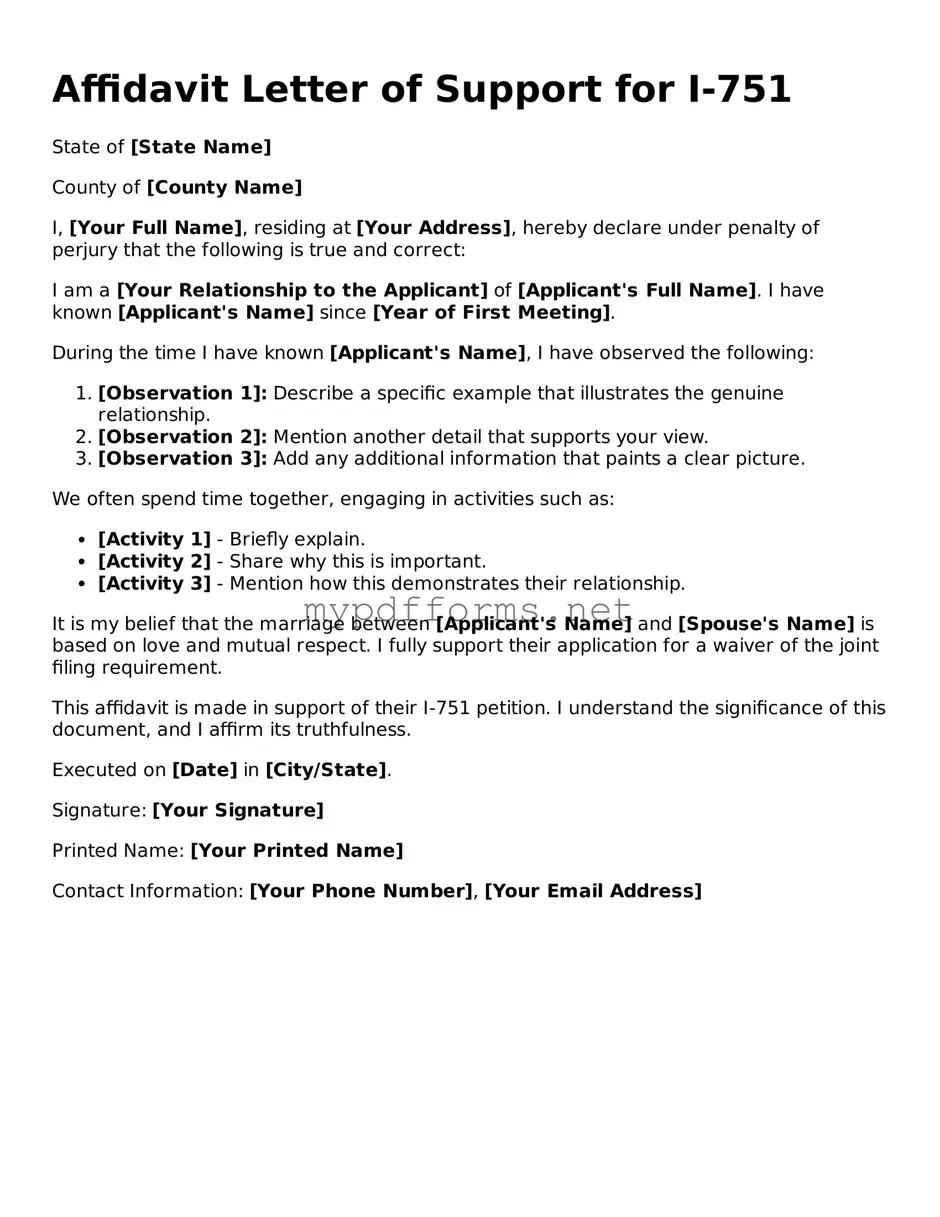The Affidavit Letter of Support for the I-751 form is similar to a Character Reference Letter. Both documents serve to provide personal insights about an individual’s character and relationships. A character reference letter typically comes from friends, family, or colleagues who can attest to the individual’s good character and integrity. This letter can be crucial in establishing the credibility of the person applying for immigration benefits, just as the Affidavit Letter of Support aims to demonstrate the authenticity of a marriage or partnership.
Another document that shares similarities is the Personal Statement. A personal statement allows individuals to present their own experiences and perspectives. It often includes details about their relationship, challenges faced, and overall life journey. Like the Affidavit Letter, it seeks to provide context and support for an immigration application, helping officials understand the applicant’s situation more fully.
Moreover, legal documents related to marital status can significantly enhance the credibility of a marriage during immigration proceedings, much like the Affidavit Forms used in various legal contexts. These documents collectively serve to substantiate a couple's shared life, reinforcing their commitment and the authenticity of their relationship in the eyes of immigration authorities.
Letters of Recommendation also align closely with the Affidavit Letter of Support. These letters are usually written by someone in a position of authority, such as an employer or teacher, and highlight the individual’s skills, achievements, and positive traits. Both documents aim to bolster an application by providing third-party validation of the individual’s qualities and circumstances.
Testimonial Letters are another similar document. These letters can be from friends, family, or community members who have witnessed the individual’s life and relationships firsthand. They provide personal accounts that can affirm the legitimacy of a marriage or partnership. Just like the Affidavit Letter, they serve as evidence to support the claims made in the immigration application.
Affidavits of Support, often used in family-based immigration cases, are also comparable. These legal documents, typically signed under oath, confirm that a sponsor will provide financial support to an immigrant. While the focus is different, both types of affidavits aim to provide assurance to immigration officials regarding the applicant's situation, whether it be financial stability or the authenticity of a relationship.
Similar to the Affidavit Letter is the Joint Affidavit. This document is signed by both partners in a marriage or partnership, affirming their commitment and shared life together. It can include details about shared finances, living arrangements, and mutual responsibilities. Both documents work to demonstrate the legitimacy of the relationship to immigration authorities.
Finally, the Declaration of Facts can be likened to the Affidavit Letter of Support. This document lays out specific facts and circumstances related to an individual’s case. It often includes personal narratives and evidence to support claims made in an immigration application. Both documents aim to clarify the applicant's situation and provide necessary context to support their case.

